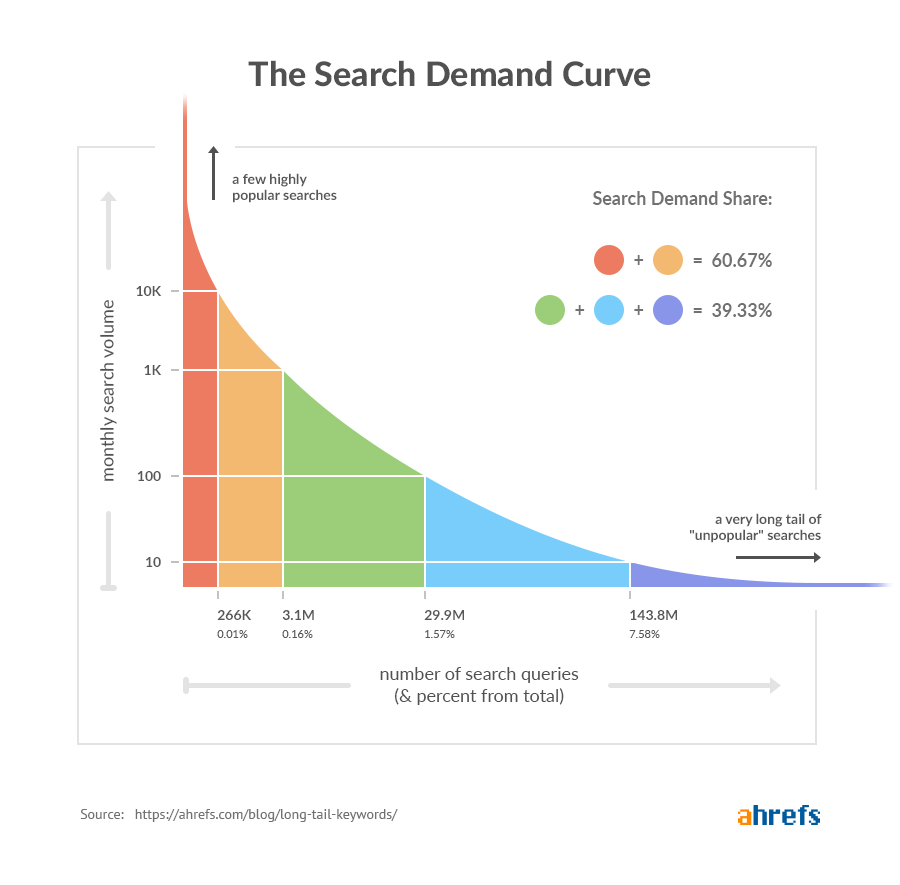SEO keywords are the most important parts of any SEO strategy. But the way experts use SEO keywords continues to evolve as search engines adjust their algorithms. This is what you need to know about SEO keywords right now if you want to effectively use SEO to drive web traffic and increase profits. And they’re especially important if you want to use SEO marketing to increase your conversion rates.
If you want your content to perform better in search engines like Google, so you can attract and then convert more prospects and shoppers, you must use these SEO keyword best practices.
Topics covered
The impact of following SEO keyword best practices

In January 2021, I was approached by an ecommerce business and asked to audit their website’s SEO. Their SEO score was 79/100, so they had a few technical SEO issues to fix, but not many. Their big issues were that:
- Google didn’t trust their website (its domain score was a measly 8/100)
- They ranked for 1215 keywords, but they were only getting 682 visitors from search engines per month
The main issue with their site, which was preventing them from attracting more shoppers, was that they weren’t using SEO keywords properly. I gave the team some strategic recommendations for optimising their site and in July 2021 they came back and asked me to repeat the audit. I found they’d fixed all the technical issues that needed fixing (their SEO score was 98/100), and they’d done a great job of implementing the SEO keyword best practices I had described to them. The result was:
- Google trusted their website far more (their domain score was up to 26/100, which is an impressive increase in just 6 months)
- They ranked for roughly 3X the number of SEO keywords (3523)
- Their web traffic had shot up to 2218 visitors per month, which was a 225% increase
I can show you how to improve your search performance with these SEO keyword best practices too.
What are SEO keywords?

SEO keywords are the most important (or key) words and phrases that people type into search engines. For that reason, they’re also often called ‘search queries’. However, it’s important to note that SEO keywords are usually not identical to the actual search queries people enter into search engines.
For example, let’s say you google ‘what are SEO keywords?’. Your search query is ‘what are SEO keywords?’. The SEO keyword is ‘SEO keywords’.
When SEO is done properly, SEO keywords and search queries are also the topics and ideas that pieces of content focus on.
When a brand targets SEO keywords that are relevant to what its target audiences are searching for, the brand will not only get more search traffic. It’ll also attract more relevant traffic.
When SEO keywords meet searcher intent, magic happens.
Are SEO keywords important?

Yes! You may see some commentators saying that SEO is dead, but it’s simply not true. As long as we can search the internet (and specific platforms on the internet), search engines will need to be able to discover content, understand what that content is about, and figure out how that content serves the needs of their search users. And in order to do that, search engines use keywords.
SEO keywords are vital if you’re going to optimise any kind of content for search engines. And while SEO is not technically necessary if you want to generate decent website traffic, it certainly makes attracting visitors much easier. So SEO keywords are very important if you want to drive more traffic to your website and digital content on other platforms.
The reason SEO keywords are so important is that they’re the most effective way to encourage search engines to display your content when attempting to fulfil a searcher’s needs. By designing content around real search queries and using those queries within your content, you make it much easier for search engines and human visitors to understand how your content resolves those search queries.
Correctly using SEO keywords is as much about matching your language with that of your ideal customers as it is about ranking well in search results.
Here are a few examples that illustrate why.
If you’ve just opened a new night club and you want to attract people looking for a new and interesting place to hang out on a Friday night, you might think targeting a keyword like ‘new clubs’ might be the best way to go. But if you’re not careful, you could end up attracting golfers wanting to buy new golf clubs or thugs looking for a replacement for their weapon of choice. (Ok that last one might be a stretch — I doubt many thugs use clubs anymore — but hopefully you get my point.)
If you own a shop that sells exotic animals, you might think ‘buy bats’ is a suitable keyword. But you might attract people looking for baseball bats, softball bats, cricket bats or any other kind of bat.
If you’re advertising ‘the perfect toast’, are you going to attract people looking for something to eat or something to say?
Search engines are getting much better at understanding the context of both search queries and content. For example, Google’s BERT algorithm update was a significant step forward in that area. However, these are good examples of why choosing the right SEO keywords can do wonders for your search results.
How to use SEO keywords

As you look further into the world of SEO, you’ll probably come across criticism of SEO keywords. And as part of that, you’ll likely discover the term ‘keyword stuffing’. This issue is a perfect example of why you’ll need to learn how to use SEO keywords correctly.
You see, in the past, lots of people used dodgy SEO techniques to boost their search rankings. One of those techniques was to cram as many SEO keywords into each piece of content as possible, and it was effective because search engines put a lot of weight on how many times a keyword was repeated. This was an easy way for search engines to assess the relevance of a piece of content to a given search query. But keyword stuffing meant that written content became a nightmare for humans to read.
It didn’t take long for search engines to discover the flaw in this approach. And they’ve since adjusted their algorithms, so they no longer reward high keyword densities. In fact, if you use a keyword too many times within a given piece of content, search engines are likely to prioritise competing content and your search rankings will deteriorate.
Despite this, the negative impact of keyword stuffing on readability has left a persistent stain on the practice of SEO. (The prevalence of dodgy SEO companies also taints the industry, but that’s a topic for another article.)
How to use SEO keywords correctly

So, if cramming SEO keywords into your content isn’t the way to go, how do you use SEO keywords correctly? There are whole courses on this topic, but for now, here’s what you need to know.
SEO keywords need to be used in a few strategic locations.
Your most important SEO keyword for a piece, called the ‘primary keyword’, should be at the beginning of your SEO title so search engines and humans alike know that’s the primary focus of the content. Similarly, the primary SEO keyword, minus any ‘stop words’ (like ‘and’ or ‘but’), should form the basis of your URL slug. (The slug is the last part of the content’s URL and is the bit you can edit whenever you create a new piece of content). Including this primary SEO keyword in your meta description helps cement the relationship, though it doesn’t directly affect search rankings.
You’ll also get better results if you include your primary SEO keyword in the title of your content, the first paragraph of any text (whether it’s spoken or written), the title and alt text for any media, such as images, videos, and audio, (where relevant) and in at least one heading if there are any. Scattering the keyword through the rest of the content, where it would naturally go, is also best practice. And the conclusion of your content is another logical and powerful place to include the primary SEO keyword.
The key with any SEO keyword, is to use it wherever doing so will improve the experience your target audience has when consuming your content. If you find yourself struggling to use it naturally, you’ve got the wrong keyword for the content or you’re trying to stuff it in too many places.
In addition to the primary SEO keyword, most pieces of content will also have one or more secondary SEO keywords that complement the primary keyword and lend structure to the content. You’ll get the best results if you use these in the meta description, throughout the main content and in relevant headings and subheadings.
A good rule of thumb is to focus one section of your content around each secondary SEO keyword or a specific search query. The more valuable keywords should show up in level 2 headings (or segment titles for video and audio etc.) and the associated content. Less valuable secondary SEO keywords might show up in subheadings or just in the body of the content.
SEO keyword FAQs
Here are some common questions about SEO keywords that might have occurred to you.
How many SEO keywords should you use?

The exact number of SEO keywords you choose for a piece of content will depend on the length or size of the content.
If you’re writing a 500-word blog post, you might choose two or three keywords, or even just a single primary keyword. Or if you’re creating a 30s video, you might focus on a similar number of keywords.
If you’re crafting a massive infographic or a 5000-word article, you might have 50 or so keywords or you might use a narrow range of keywords but target several search queries for each keyword.
If you’re creating an ad campaign, you might target hundreds of keywords, though you’ll likely only include a small number in the ad itself.
Are more keywords better?
Unless you’re creating an ad campaign, the answer is a resounding ‘no!’. In order to properly target any keyword, you need to devote a reasonable amount of your content to that keyword. If you cram too many keywords into a piece of content without increasing its size, the ranking signals from the content will be diluted and your search rankings will suffer.
If you find yourself with a long list of keywords on a particular topic, that just means you either need to create a large piece of content, or you might need to create several pieces on different parts of the keyword set.
How many keywords is too many?
If you find yourself devoting less than 300 words (or the equivalent for other types of media) to any given keyword, you’re probably not going to rank well for that keyword in relevant search results. If your ratio of keywords to content length is more than that, you probably either need to expand some sections of your content or properly target some of the keywords with another piece of content.
In the latter case, you could still mention all the keywords within the content, but you might then create another piece of content that goes into the topic in more detail.
As an example, I’ve written fairly short answers to each of these FAQs because I believe doing so will offer value to you as a reader (or listener). I don’t expect this piece of content to rank well for those search queries.
If I want to rank for those specific search phrases in the future, I’ll keep these FAQs here and create and link out to a blog post or video, or some other piece of content, that covers the question more comprehensively.
For the search query ‘how many keywords is too many?’, for instance, I might include statistics about average content length and how many keywords are in the average blog post and video. And I might provide some examples of great content with the right number of keywords and terrible content that’s got way too many keywords.
What are long-tail keywords?
Long-tail keywords are SEO keywords that have fairly low search volumes. They tend to be longer (contain 3-4 or more words) and therefore narrowly focussed. And because of this narrow focus, pieces of content that target long-tail keywords tend to have higher conversion rates than those that target shorter, less specific SEO keywords.
If you’re wondering why they’re called ‘long-tail’ keywords, this graph from ahrefs offers a good visual description.

SEO keywords that form the basis of a lot of search queries, tend to be popular and so have high monthly search volumes (there are a lot of people searching for those keywords). On the other hand, unpopular SEO keywords that have low monthly search volumes tend not to be included in a large number of search queries. This leads to a long ‘tail’ on the right-hand side of the graph, hence the term ‘long-tail keywords’.
And you can probably appreciate logically why longer keywords tend to be more likely to be long-tail keywords. The greater the number of words in the SEO keyword, the more specific it is and therefore it is less likely to form the basis of a wide range of search queries.
Long-tail keywords can be valuable for a business despite their low search volumes because ranking well for lots of long-tail keywords can end up driving reasonable or even significant volumes of highly targeted search traffic for months or years to come. The better targeted, or more relevant, the traffic, the easier it is to tailor sales messages to that exact audience and therefore the higher the visit-to-sales conversion rate will be.
Should SEO keywords be single words?
This is a common cause of confusion because when we normally think of a keyword, we think of a single word. But in terms of SEO keywords, each keyword could be a single word or a phrase. In most cases, your SEO keywords will be phrases as it is very difficult to rank for single-word keywords and the majority of search queries are four words or longer.
What is the ideal keyword density for SEO?
Keyword density is the number of times a given keyword is used in a piece of written content as a percentage of the total number of words in that piece (rather than the number of SEO keywords in relation to the content size or the number of instances of every keyword in relation to the content size). Back in the days when keyword stuffing improved search rankings, keyword density was a good predictor of search rankings.
Some people still recommend specific keyword densities or ranges of densities to aim for, but such advice isn’t relevant to modern SEO. Having said that, if you’re not using a keyword or variations enough, the keyword probably isn’t a good fit for your content. And if you’re using one too much, you might get penalised by Google and other search engines. So anyone who says keyword density doesn’t matter for SEO isn’t telling the entire truth.
Real data indicates that top-ranking written content generally has a keyword density of around 1.5-2.5% for the average niche. (Your niche may be different so you will have to do your own experiments to see what works best for your brand.) Always use your SEO keywords naturally and in logical places, but using this value as a guide may help you identify when you’re not using your keywords naturally or if your keywords aren’t a good fit for your content.
How to find SEO keywords

Once you decide you want to use SEO practices to drive website traffic and increase profits, you’ll need to know how to find SEO keywords that are relevant to your goals for each piece of content you publish. For that, you’ll need to do SEO keyword research.
What is SEO keyword research?

SEO keyword research is the process of investigating real search queries that people from your ideal audience are using to find the information, resources, answers and media they’re looking for, and then extracting the most valuable key terms.
When you perform SEO keyword research, you discover search queries that are actually being used, not hypothetical terms, and analyse them to determine how much value there would be in you publishing content that resolves those queries. This gives you valuable strategic direction and also shows you what language your target market uses.
From there, you can pull out relevant SEO keywords and then optimise your content for those key terms.
There are several kinds of SEO keywords, such as informational, transactional (sometimes called ‘commercial’), and ‘local’, which enable you to target search users at different stages of their buyer journey. Some will be more relevant to you than others. For example, if you’re a SAAS business, alternatives and comparisons, and task-oriented search keywords will be especially important.
What is local SEO keyword research?

Have you ever searched for a type of business in your vicinity? For instance, have you ever googled something like ‘pizza near me’? If you have a physical, bricks-and-mortar shop, you’ll get far more foot traffic if you can show up in the search results for these kinds of searches.
Local SEO is the way to improve your chances of ranking well for these kinds of local searchers.
And by extension, local SEO keyword research is just like normal SEO keyword research except that you’re focusing specifically on the SEO keywords that relate to local search queries.
How to do SEO keyword research

The process of conducting SEO keyword research is another one of those topics that could form the basis of a whole course, so here is the overview you need to get you heading down the right SEO path.
- Pick a topic — SEO keyword research starts with a topic. You need to think of a topic that’s relevant to your brand and is of interest to your audience. You might take a look at the topics your competitors are focussing on for inspiration. Perhaps you can identify a gap in their coverage.
- Research relevant search queries — Once you have a topic, you can use the search engines themselves as well as a keyword research tool to discover what people are actually entering into search engines when they’re searching for something related to that topic.
- Extract the SEO keywords — By grouping the search queries according to similarity, you should be able to pick out words and phrases that are frequently repeated in each group. Those are your initial batch of SEO keywords.
- Go deeper with your search query research — Once you’ve got a set of SEO keywords, you can then enter that into the search engines you care about and your chosen keyword tool to see if there are additional relevant search queries you may have missed. You can then repeat steps three and four as many times as you need to until you’re confident you’ve discovered all the relevant search queries and SEO keywords.
- Asses your SEO keywords — Then it’s time to assess the value of each SEO keyword to your brand. By looking at how difficult it could be to rank for each keyword using SEO and comparing that with the amount of competition there is for that keyword in the paid ad space, you can get a sense of how much time, effort and money you might need to devote to creating content focussed on each keyword. You can also look at the top content that currently ranks for each keyword and the most important search queries to determine how strong the competition is and whether there are any obvious gaps you could exploit.
- Finalise your list of SEO keywords — Armed with that information, you can choose which SEO keywords you’re prepared to target and develop a strategy to guide your efforts.
SEO keyword tools for keyword research

In terms of the tools you could use to conduct your SEO keyword research, there are a lot to choose from. Some are free, while others come with a financial cost. Here are some popular choices you can start with. Once you’ve had some experience with keyword research, I recommend you explore the many available tools to find the ones that work best for you.
- The search engine of interest — If you want to find search queries entered into a particular search engine, head to that search engine and start typing your chosen topic into the search field. The auto-complete feature will suggest ways to complete your search query based on what others have typed into the search field. You can also look at the ‘people also ask’ results and the ‘related search terms’ section to find more search queries.
- Keyword Tool — Keyword tool does exactly what I’ve described above for several search engines in just a few seconds and it’s free.
- Ubersuggest — Ubersuggest provides a similar service but also provides a lot more information in its free version such as search volume, SEO difficulty and paid difficulty as well as some historical data. It even tells you how many backlinks the top content has. The trade off is that it only provides this data for a limited number of search queries. There is a paid version of Ubersuggest that provides this information on far more keywords and search queries as well as additional information.
- Answer the Public — Answer the Public is another free tool that takes a keyword and delivers real search queries related to that keyword. The difference with this tool is that it sorts all the queries into questions, prepositions, comparisons, alphabeticals, and related searches. Ubersuggest sorts queries as well but into different groups.
- Keyword Surfer — Keyword Surfer is a useful Chrome extension that shows search volumes as you perform searches. This can be a great way to identify serendipitous keywords and can be particularly useful for certain kinds of keyword research workflows.
- Keyworddit — If you want to target Reddit, this is the tool for you. It does a similar thing to the other tools mentioned here but for Reddit rather than for a ‘traditional’ search engine. It’s also a great way to explore the kinds of topics your target audience cares about. Questiondb is a good tool to complement Keyworddit.
- Bulk Keyword Generator — This is the tool to use if you’re focussing on local SEO. It generates SEO keywords for specific industries that can be really useful when you’re conducting local SEO keyword research.
- Keywords Explorer — If you’ve got the budget (at least USD99/month) ahrefs has produced a very good paid keyword tool that includes an enormous amount of data that you just can’t get from free tools. There’s a lot of debate about which paid SEO tools are best, but ahrefs’ Keyword Explorer is highly regarded throughout the industry.
TLDR — What SEO keywords are and why SEO keyword research can help you increase your profits

SEO keywords are the key terms used in real search queries that are strategically placed throughout a piece of content and its SEO particulars to increase the chances of search engines prominently displaying the content in their search results.
Effectively conducting SEO keyword research will enable you to discover the real language your target audience uses and then tailor your content to exactly fit your audience’s needs and expectations. At the same time, you’ll be able to optimise your content so search engines can understand the value of and prioritise it, resulting in you attracting larger volumes of exactly the right kind of visitors and then converting more of those visitors into paying customers.
Your SEO keyword action items

To get you started using SEO keywords effectively, I’ve got an activity for you to do.
For this activity, you’ll need the piece of content on your website that attracts the most Google search traffic (except your homepage). A blog post would be an ideal piece of content to practice on, but you can use a webpage if you prefer, or don’t have a blog. To identify this piece of content, log into your Google Search Console account, click on ‘performance’ and ‘search results’ (if that option is available), and then click on ‘pages’, and make sure the results are sorted so the highest number of clicks is at the top. The content with the most Google search traffic will be at the top of the list.
If you haven’t set up Google Search Console, create a free account and follow these instructions for verifying your site. Then while you wait for the tool to begin collecting data, use Ubersuggest to approximate the traffic to your pages.
Once you have your piece of content, follow these steps:
- Click on the URL in Google Search Console then switch to the queries tab. Make sure the list is sorted by clicks and find the top query. This is the keyword that attracts the most visits to that page. Now check the tick box to display your average position for the query. Note down the query and your position. (If you’re using Ubersuggest, click on the top page and find the top keyword for that page.)
- Now visit the page you chose and make a note of the title of the page, the first paragraph of text (or if it’s a long paragraph, the first 100 words), and the URL of the page. Then copy the page URL and head to Google. In the search bar type site:pageURL and hit ‘search’. (Make sure there’s no space between the colon and the URL of the page.) The first search listing should be the listing for your page. Note down the title and description in that listing, and note the URL folder structure at the top of the listing.
- Check to see if the keyword you noted down is in every piece of text you noted down. (If the keyword doesn’t make grammatical sense, you can modify it slightly until it does. And if it includes something like ‘near me’, exclude those words from the keyword for this exercise.) If it is, there’s a good chance your page is reasonably well optimised for that SEO keyword. If the keyword is missing from one or more of those pieces of text, re-write the text until the keyword fits naturally. Once you’ve done that, update the page with the new text and publish it. Then in a month’s time, check your Google Search Console data again and see if your clicks for that keyword have improved. If you were already ranked in position 1 for the keyword, you may not notice much of a difference. If you were ranked higher than number 1, then you may very well notice an improvement.
This is a very basic process for optimising content for a single SEO keyword. You can follow the same process for every piece of content on your site if you like. And when you create new content, you’ll now have a good understanding of where you need to put your primary SEO keyword.
Having said that, please be conscious of the fact that the keyword you get the most clicks for may not be the very best keyword for you to target. As such, a proper optimisation process will first choose the most appropriate SEO keyword. That can be a complicated task, though, so for this exercise, I’ve kept things as simple as possible. If you’d like help choosing the right keyword for your content, or help learning how to choose the right keyword, get in touch and I’d be happy to help you.
